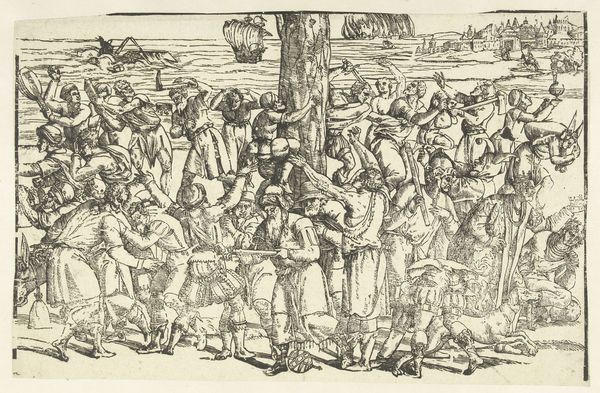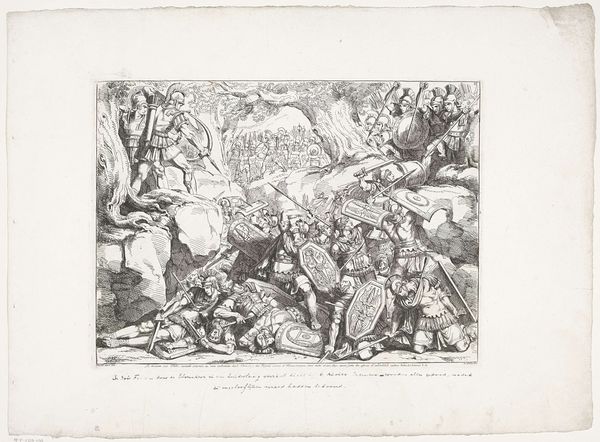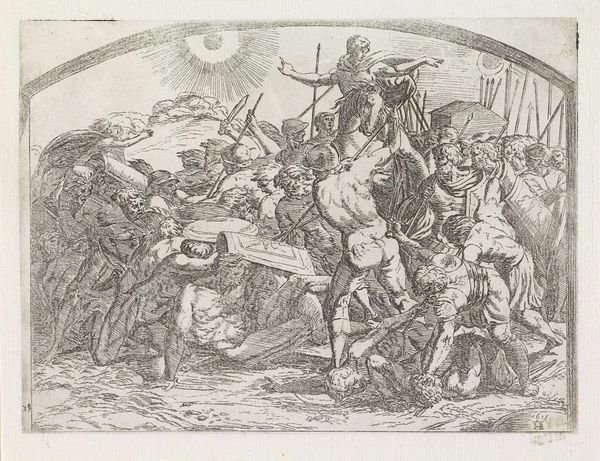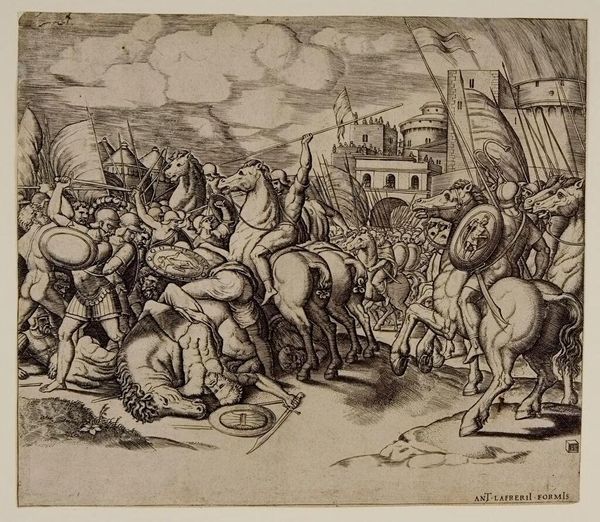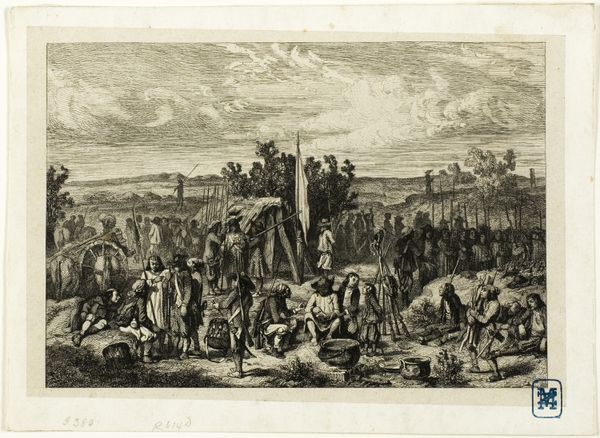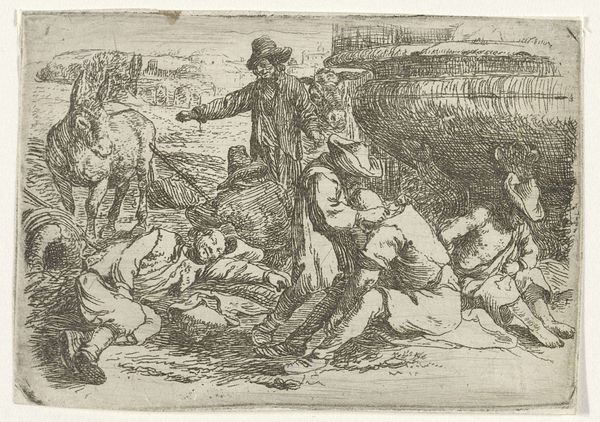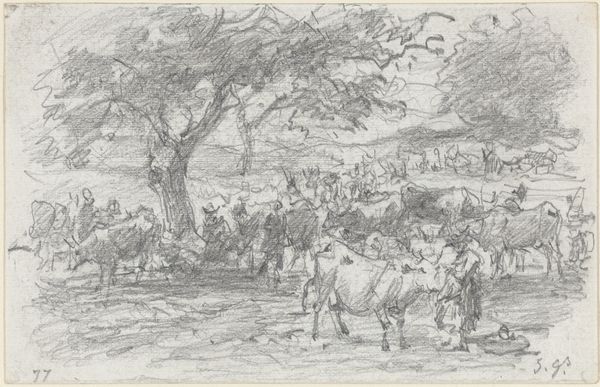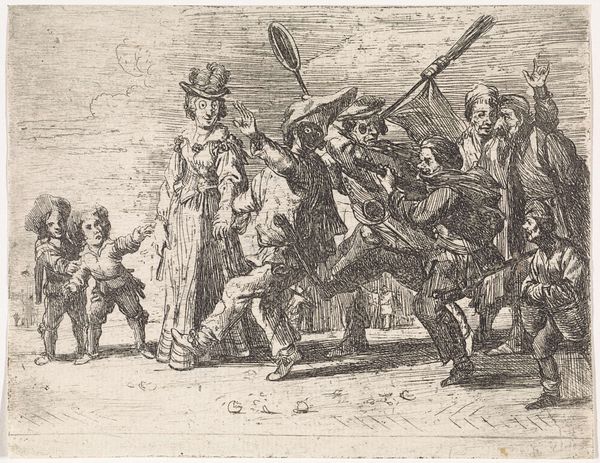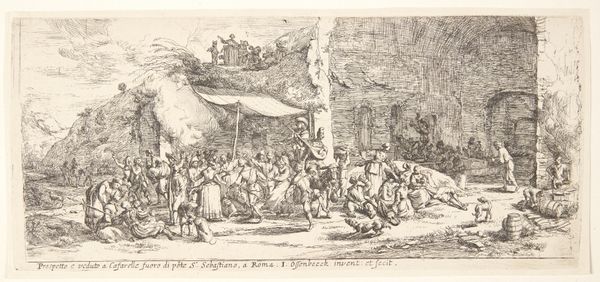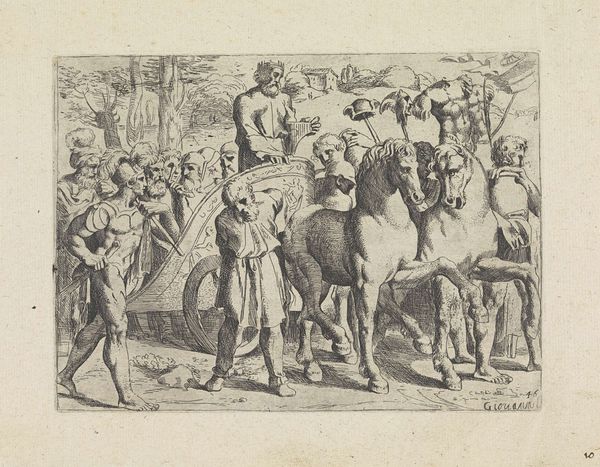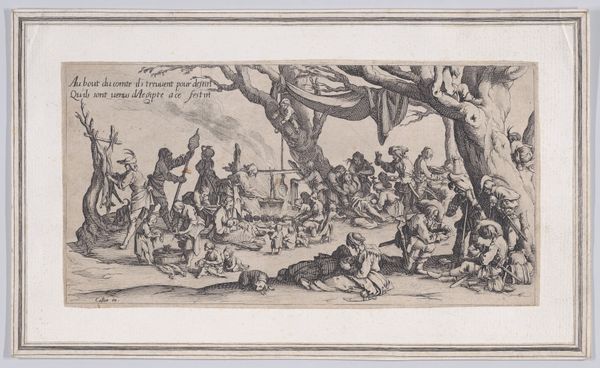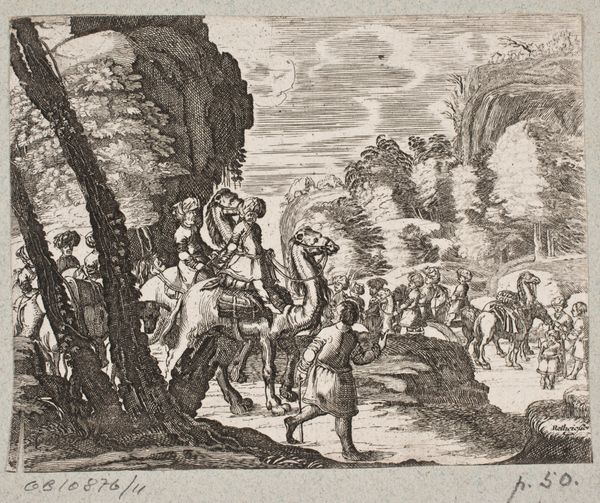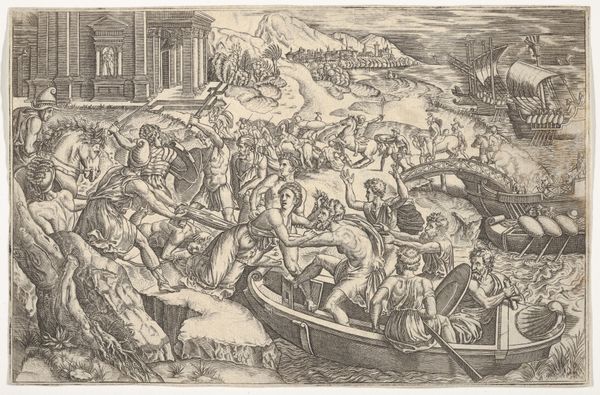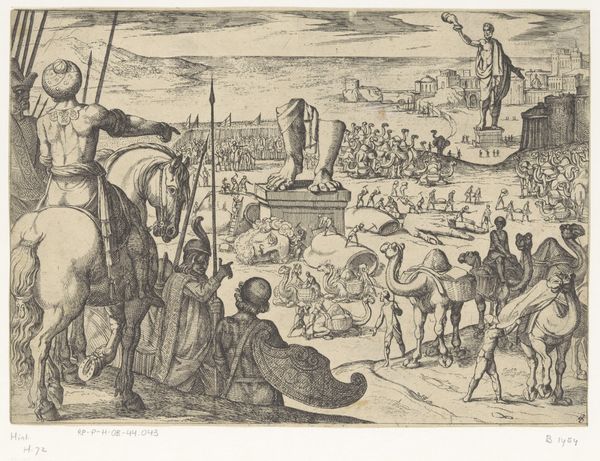
Illustration til Adam Oehlenschlägers digt "De to kirketårne" 1844
0:00
0:00
drawing, print, ink, engraving
#
drawing
#
ink drawing
#
narrative-art
# print
#
figuration
#
ink
#
romanticism
#
line
#
history-painting
#
engraving
Dimensions: 111 mm (height) x 155 mm (width) (bladmaal)
Editor: Here we have Lorenz Frølich’s "Illustration til Adam Oehlenschlägers digt 'De to kirketårne'," created in 1844, using ink and engraving. The composition feels incredibly dynamic and chaotic, filled with figures in motion. How would you unpack this visual density? Curator: Precisely, it is through the meticulous arrangement of lines that Frølich establishes a distinct visual hierarchy. Note how the density of line work and overlapping figures creates a sense of depth, pushing some forms forward while receding others into the background. What compositional strategies can we identify? Editor: I see how the figures are clustered, with the most intense action occurring centrally. Is it primarily about this dynamic arrangement and interplay of light and shadow achieved through line variation? Curator: The line is fundamental. Observe how Frølich modulates its thickness to define form, texture and spatial relationships. Ask yourself, does the medium of engraving inherently lend itself to the depiction of such dramatic narratives? Editor: I guess engraving, with its precision, really emphasizes form, giving this imagined scene an almost tangible quality. But wouldn't knowing the original poem add another layer of interpretation? Curator: While knowledge of the source may enrich the experience, a formalist approach insists on the primacy of the artwork's internal language. The relationship between its elements and the technical mastery dictate our understanding. We might consider how it positions itself within the broader scope of engravings during the Romantic era. Editor: It's amazing to consider how much can be understood through careful analysis of form and technique. This engraving really exemplifies the power of lines and composition to create vivid storytelling. Curator: Indeed. It is the visual syntax – the interplay of lines, the arrangement of forms – that unlocks the work’s expressive potential. By appreciating these elements, we appreciate Frølich’s creation more completely.
Comments
No comments
Be the first to comment and join the conversation on the ultimate creative platform.
